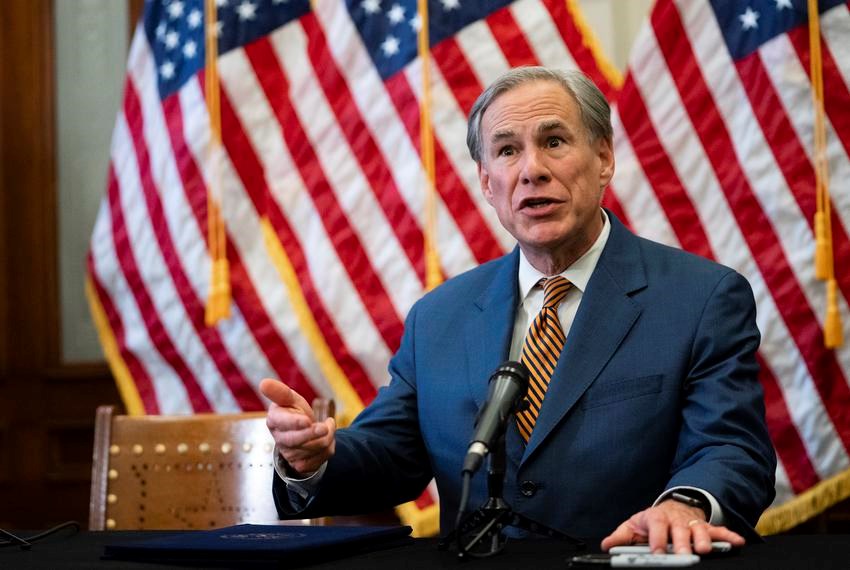TX governor Abbott threatens to ban Chinese from buying property
The ban also includes citizens from Iran, Russia and North Korea, and is supported by Florida and Virginia governors.
-

Texas governor Greg Abbott after signing a bill at the Texas Capitol (The Texas Tribune)
Amid increased tensions with China, Texan Governor Greg Abbott, with the support of other state officials, is threatening to prevent Chinese nationals from buying property and real estate in Texas. Individuals from Iran, Russia, and North Korea are not exempt either.
Republican State Senator Lois Kolkhorst supported Abbott in barring citizens and governments from China, Iran, North Korea, and Russia from purchasing land in Texas.
'America's greatest foe'
Kolkhorst finds growing Chinese ownership "disturbing", as the Senator added after filing a bill in December: "As an American go try to buy land near a Chinese military base and see how it works out for you" referring to a purchase in 2021 made by a Chinese company of over 130,000 acres in the state.
Agriculture Commissioner Sid Miller expressed in an op-ed published last year that instigated the ban that "Communist China, America's greatest foe, is on a bender,... they are buying up farmland across the United States and Texas."
Florida Governor Ron DeSantis and Virginia Governor Glenn Youngkin, coincidentally both GOP potential candidates for 2024, also called for the ban to take effect.
Read next: US FCC prohibits Chinese telecom and surveillance equipment
According to Kolkhorst, the bill "will make crystal clear that the prohibitions do not apply to United States citizens and lawful permanent residents,"
In response on Monday, Chinese-born state Rep. Gene Wu showed a picture of the house he was raised in in Houston, saying, "This is the house my parents bought when we were on our way to citizenship,"
He continued, "This was our first step on our path to the American dream. This was our milestone. This is what we did to show that we're here and we made it... This type of legislation is what we're facing all over again," as he referred to the Kolkhorst bill and likened it to anti-Asian policies like the Chinese Exclusion Act of 1882. The Act prohibited the immigration of Chinese laborers to the US for 10 years.
Foreign buyers defy the bill
A report by the Austin Board of Realtors showed that homebuyers identifying as Chinese made up 6% of international homebuyers in Central Texas between the timeframe of April 2021 and March 2022, which include non-American citizens with a green card or with a foreign work/student visa.
However, more than half of the international buyers carry a green card, which means that they are legal and lawful permanent residents - which defies Kolkhorst's bill.
$613 million of properties in the greater Austin area were invested by foreign buyers from April 2021 to March 2022. The trade association Texas Realtors is "monitoring this issue closely," according to David Gibbs, the spokesperson's statement to Axios.
Texas trumps TikTok
Abbott has already voiced his readiness to ban TikTok, which is a Chinese-owned company, over the issue of cybersecurity concerns.
TikTok has been blocked on the University of Texas' Wi-Fi networks since January 18 after the university took the decision to demonstrate its support of the US government's decision to ban China-owned cybertechnologies, citing cyber security fears.
In December 2022, the US House of Representatives announced a ban on TikTok for their members and staff due to "security concerns". That month, Abbott issued a directive barring the use of TikTok on state devices. "TikTok harvests vast amounts of data from its users' devices — including when, where, and how they conduct internet activity — and offers this trove of potentially sensitive information to the Chinese government," he said.
It is worth noting that students can still access TikTok by disconnecting from university networks and using alternative networks.
The application has roughly 80 million users across the US. As such, Jamal Brown, the company's spokesperson, told Axios that "we're disappointed that so many states are jumping on the political bandwagon to enact policies that will do nothing to advance cybersecurity … and are based on unfounded falsehoods."

 4 Min Read
4 Min Read








